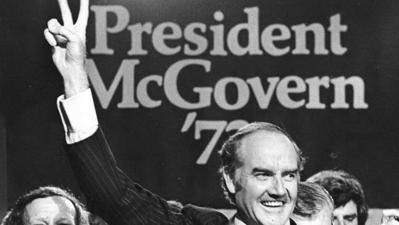State Sen. David Holt has been elected mayor of Oklahoma City and will be sworn in on April 10. "I want to be part of creating a strategic vision for the future of public education in our city," he
. "And then I’m going to be working every day to incorporate the diversity of our city into decision-making."
Though he's an enthusiastic public-school booster, Holt has also been good on many school choice issues. He mainly supports some forms of
public-school choice (charter schools and
parent trigger, for example), though he also voted last year to expand Oklahoma's private-school
voucher program and
tax-credit scholarship program.
On the other hand, he was not at all helpful when it came to trying to provide education savings accounts (ESAs) to low-income students in some of our state's worst schools. During last year's legislative session, Mary Mélon, president of the Foundation for Oklahoma City Public Schools, sent an email to several public school supporters, including Sen. Holt, warning that an ESA bill which was being heard the next morning would have "dire consequences for OKCPS." (How's that for confidence in one's own product?
Any sane person would flee if given the opportunity!)
Less than an hour later, Holt replied with the assurance that he planned to introduce two amendments in committee which would, shall we say, markedly dampen the bill's prospects.
Disappointingly, the bill's author had to pull the ESA bill when it became clear that, for a variety of reasons, he wasn't going to have the necessary votes for passage.
"In shelving a modest school choice bill because some Republicans capitulated to education establishment lobbyists, the Republican majority undermined their campaign vows to advance conservative policy and ignored the needs of some of Oklahoma's neediest children," The Oklahoman rightly
noted. "Sadly, too many legislative Republicans preferred the 'absence of tension' with status-quo forces to aiding poor families and creating a better future for all Oklahomans."
One hopes that, as mayor, Holt's views will evolve and he'll come to see the importance of casting a strategic vision for the future of
education—not just government-operated schools—in Oklahoma City. After all, he knows better than most that many young families will never even
consider living in the Oklahoma City school district, at least not while the charter school waiting lists are so long. But give them, say, a $5,000-per-child voucher or ESA and suddenly the calculus changes considerably. As real estate professor Bart Danielsen and former Oklahoma City mayor Kirk Humphreys
pointed out in The Oklahoman and in remarks at a
meeting of the Oklahoma School Choice Coalition, educational choice policies can alter family-relocation patterns, revitalize cities, increase property values, and more.
Speaking of Kirk Humphreys, you're doubtless familiar with the cultural left's recent
defenestration of Humphreys from the University of Oklahoma board of regents. Happily, however, despite the
intolerance and discrimination shown by some citizens, Humphreys was able to retain his position on the board of the John Rex Charter Elementary School—even though Sen. Holt doesn't think the former mayor is fit to serve. Holt
said:
I do not agree with Kirk Humphreys’ views on this matter and after making his views public, I don’t believe he can credibly serve in a public education leadership role.
Hmmm. The former mayor of Oklahoma City, "an evangelical Christian who simply articulated
the view that has been traditionally embraced for 2,000 years by Christians of virtually all branches," cannot credibly serve on the board of a charter school? Really?
This understandably provoked some questions. Local pastor (and Humphreys' son-in-law) Jonathan Middlebrooks engaged Sen. Holt on Twitter:
- Your quote is being used by the group opposing Kirk Humphreys' position on the John Rex board. You say "do not agree with Kirk Humphreys’ views on this matter." Does this mean the views he clarified in his apology and press release?
- Do you agree that according to the group petitioning for his removal that “his fundamental beliefs disqualify him from public leadership”? Those beliefs being Christian beliefs?
- Do you believe that citizens with deeply held religious beliefs like Muslims, Orthodox Jews, or Christians cannot serve public offices or should be blocked from doing so due to those beliefs?
- Are Christians and other religious groups right to expect a Mayoral candidate to protect their freedoms alongside all other citizens? To say someone “cannot credibly serve in a public education role” due to his religious beliefs seems dangerous.
- As a citizen in OKC, a local pastor, and community leader I believe these are important questions that we deserve to have answered. I appreciate any response here or would love to meet in person.
Sen. Holt replied:
- My comment speaks for itself and I don’t see it having any relation to your follow-up questions. I am a Christian. All people are welcome in my OKC. You are welcome to send me an email if you’d like to visit further. Davidholt@gmail.com
- Also, I am not involved in this issue in any way. I responded to a question and stated my personal opinion, and I suppose people are free to quote me, but if you are passionate about this issue I would encourage you to lobby those involved in it. I am not.
Sen. Holt says he's "not involved in this issue in any way," but that's incorrect. He's a public official who said publicly that he doesn't believe Humphreys can credibly serve—and his words are being used by those who wanted to oust Humphreys. So, he's involved.
Sen. Holt says that “all people are welcome in my OKC.” That’s disingenuous to the point of being insulting. Humphreys is not saying—indeed, no reasonable person is saying—that those who practice homosexuality are not welcome in the city.
Moreover, Sen. Holt's comment does not “speak for itself.” On the contrary, his vaguely worded comment—regarding Humphreys’ views “on this matter”—veritably cries out for the sorts of astute, respectful follow-up questions which were asked and which deserve an answer.
John Rex is a successful charter school, and with any luck OKCPS will convert to a
charter district early in Holt's tenure as mayor. But as the new mayor seeks "to incorporate the diversity of our city into decision-making," citizens need to know if that diversity includes Muslims, Orthodox Jews, Christians, and others who hold traditional religious views on sexual morality. Because if the mayor or other leaders evince an
intolerance that deems certain citizens unfit to serve, that's a problem far more serious than any disagreement over education policy.
UPDATES:-
Regrettably, Mr. Holt has gone steadily downhill, declaring the city's first-ever LGBTQ "Pride Week."
- The executive committee of the U.S. Conference of Mayors recently passed a resolution supporting the establishment of a federal commission "to study and consider a national apology and proposal for reparations for the institution of slavery." Holt is a member of that committee. A reporter has asked him repeatedly if he favors the proposal, but Holt won't answer.










